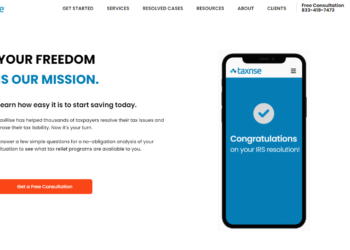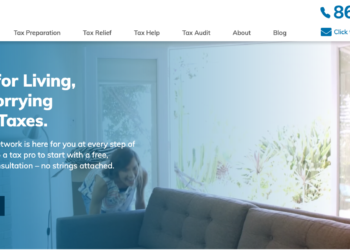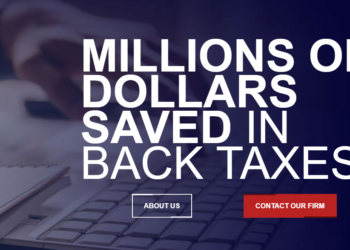Never ignore tax debt. While it may be daunting to face the IRS, ignoring tax debt does not make it go away any faster and makes your situation even worse. If you are looking at a large tax bill after filling out your income tax return, it is important to take immediate action to resolve your debt.
Here is an overview of what not to do when you owe the IRS money.
Mistake #1: Not Filing a Return
If you owe the IRS taxes but can’t afford to pay them, it may be tempting to not file tax returns at all. However, not filing your returns actually makes your situation worse. If you do not file your return on time, the IRS will add on a 5% Failure to File penalty every month you owe taxes, up to a 25% maximum fee. In addition to this penalty, you will also pay interest on your tax debt until you pay it in full. Even if you cannot afford to pay your taxes right away, always file a tax return so you avoid penalties and interest.
Mistake #2: Not Setting up a Payment Plan
Contrary to popular belief, the IRS doesn’t want to spend their days hunting down delinquent taxpayers. In fact, the IRS continually offers payment plans that make it easier for taxpayers to find a resolution to their tax debt. If you have taxes that you owe but cannot pay, consider looking into seeing if you qualify for an installment plan to pay off your debt over time.
As of 2015, you could be eligible for an online payment plan if you owe the IRS $50,000 or less in taxes, interest, and penalties. If this applies to you, you can apply online for a payment agreement. If it does not apply to you and you want to see what other plans you may qualify for, you will need to fill out form 9465 and mail it to your IRS office.
The IRS will give eligible taxpayers up to 72 months to pay their tax debt in full. While 72 months is a long time and may make it seem easy, remember that interest and penalties will still accrue over this time until your balance is paid in full. In addition, if you are owed a refund in future tax years while you are still on the payment plan, the IRS can apply those refunds to what you owe.
Mistake #3: Not Filing an Extension
When you request an extension, you can receive an additional six months to complete your tax return. If you file for an extension before the April tax deadline, you will not need to worry about the failure to file penalty. However, you will still owe a failure to pay penalty on any outstanding taxes. This comes to 0.5% of the balance and is capped at 25%. If you’re concerned about not being able to pay your taxes on time, be sure that you file an extension before the deadline to make you doubt accrue additional penalties and fees.
Mistake #4: Choosing a Bad Way to Pay
When faced with a large tax bill, many choose to go into debt elsewhere to settle with the IRS. This could mean taking out a personal loan, charging it all to a credit card, or borrowing against your home equity.
Be cautious while making the decision to transfer your debt to another source. Take time to compare interest rates, fees, and other repayment terms for every option you are considering to solve your tax problems. If you aren’t careful, your decision could put you in another sticky situation in the future. Consider reaching out to a CPA or tax professional to explore your options. Paying the IRS should not have to put you into bankruptcy elsewhere.
Mistake #5: Ignoring the Consequences
Penalties and interest are not the only consequences the IRS can give for not paying taxes. They can also cancel your passport, garnish your wages, or even place a lien against your property. While the IRS cannot throw you in jail for unpaid taxes, they can make your life equally difficult. Unfortunately, many people don’t even know what wage garnishment is until it happens to them. By staying educated about the consequences of unpaid taxes, you can stay ahead of the IRS and strategically plan your next steps.
Bottom Line
No one enjoys paying taxes, especially if you weren’t expecting to be hit with a bill. While ignoring your tax debt is tempting, facing the situation head-on is the best approach for your financial future. Remember, the IRS wants to work with you to find a plan so you can pay your taxes. If you owe the IRS more than what you can afford, it may be a good idea to contact an expert that can guide you through the process. Feel free to click here to find a tax relief company that works for you.



















